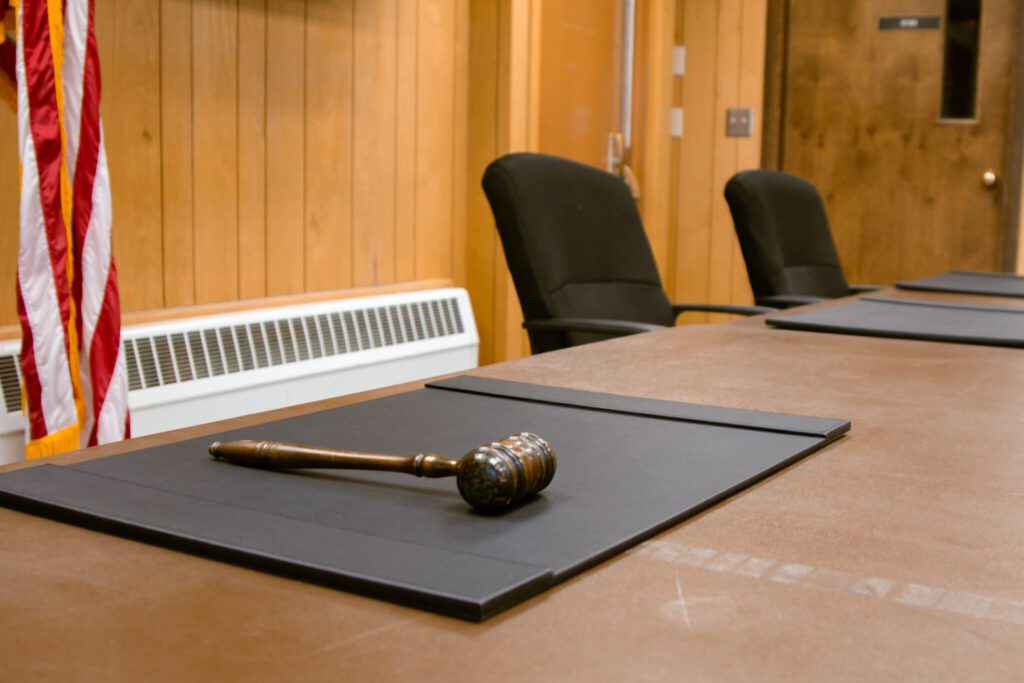Handling vacant properties, grandfathering in a business, and city annexation were just a few of the topics considered during joint work sessions of the Nome City Council and the Planning Commission this week.
Most discussed was the commission’s recommendation to create a registry of vacant properties for the city, alongside a list of maintenance requirements for property owners.
With fully one third of the buildings in Nome vacant, City Planner Eileen Bechtol said dealing with abandoned structures is the number one request from the public after a citywide survey last August.
Building inspector Greg Smith says the registry is also about public safety.
The city needs “maintenance and security requirements in order to protect the public, which we don’t have on the books anywhere,” Smith said.
“And the police are responding more and more to young kids, going into vacant buildings, playing with matches … we got a problem!”
Smith said a vacant property registry would give the city a list of who to contact for any issues that might come up involving abandoned buildings, and also lay out and maintenance regulations and, for example, what a property owner would be responsible after a fire in or near one of the derelict structures. Smith said similar registries have been used successfully in other Alaska communities.
The planning commission’s docket included additional language that and could fill in some gaps in Nome’s city code, Smith said. “It also goes into definitions of junk, debris, how you can leave a lot … stuff we don’t have.”
Council members countered that it’s tricky business to define “junk” or “debris” in a town like Nome. Some said the new rules could be incentives to clean up properties or even leverage favorable property tax rates on structures that aren’t abandoned.
Council member Randy Pomeranz said it’s not so simple.
“We as a community are kind of stuck here, you know, we all want to “new” forward, but got so much old stuff to deal with,”Pomeranz said. “I think [City Clerk] Tom [Moran] has a good idea with some of the incentives to try to get rid of some of the old and get some new, but I think there’s a lot of people that, those are treasures.”
The vacant building registry was just a first step, the start of a conversation, at the meeting; so, too, was similar to talk of strengthening the city’s rules on grandfathering property to comply with the community’s relatively new zoning laws established in 2007.
Left all but named was a divisive service contract for the city’s fleet of police and emergency vehicles that saw zoning around a local business, and some council members’ objections to the contract based on that zoning. Now the council is tasking the planning commission with clarifying what some on the council say was a murky process of grandfathering in a business—and otherwise keeping property legal—in an area zoned for something else.
Finally came a discussion on city annexation. Should the city consider—and dedicated resources toward looking into—the pros and cons of annexing property outside current city limits?
Countless questions were raised about how far out the city would extend: to the Snake River, about seven miles west of central Nome? Or out to Banner Creek, some 35 miles north of town? And just what kind of services—and infrastructure—could the city actually afford to extend to those places?
Council and commission members also asked just how much would those residents further afield have to pay for things like school busses, trash pickup, plumbing, and more.
City Manager Josie Bahnke says the questions are valid, but annexation would also allow residents in those communities outside the city to have a voice in the community.
“A lot of the folks I talk to in the Dexter [and] Banner Creek area, they want to be able to be active in the school board, they want to have a voice at this table, at this podium, to share concerns about whether it’s road maintenance or education or other city services,” Bahnke said.
Council member Louie Green Sr. said those people already “participate” in those community decisions when they pay sales tax.
While much of the planning commission’s work is only considered a preliminary step to any kind of official ordinances or policies, several of the issues—including the vacant lot registry—will officially go before the city council at their meeting on Monday, June 22.







